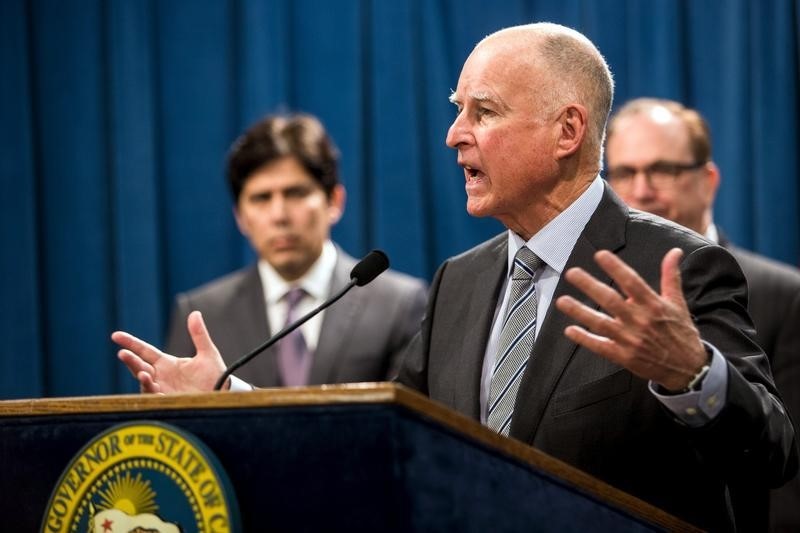By Sharon Bernstein
SACRAMENTO, Calif. (Reuters) - California Governor Jerry Brown on Thursday called for increased funding for education and a tax credit for the working poor, but he stopped short of agreeing to fund social programs that were cut during the recession despite a jump in state revenues.
In his annual May revision of his budget proposal, Brown stuck to his promise to hold the line on spending, despite a windfall that has set up intense jockeying for funding among state agencies, advocates for the poor and others.
"I don't want to get caught in the jaws of the persistent fiscal instability of the state government of California," said Brown, a Democrat.
Still, the revised budget included increased spending on education, climate change and drought relief.
After months of tense negotiations with Janet Napolitano, president of the University of California system, Brown also agreed to spend $440 million over the next three years to pay down the university's unfunded future pension liability, in exchange for her promise not to raise tuition.
The budget revision calls for a 1.8 percent rise in general fund expenditures to $115.3 billion. The rainy day fund will be increased to $3.8 billion, up from $1.6 billion last year. K-12 education funding increased $3,000 per pupil over 2011-12 levels.
Most of the increase in the education budget and the rainy day fund are required by state laws passed by voters as ballot propositions. But Brown said he agrees with those priorities.
The fiscally moderate Democrat's proposal was welcomed by the state's minority Republican lawmakers, who praised him for what they called a balanced approach.
"When faced with higher revenues, holding the line on spending is a good thing," said Senate Republican leader Robert Huff, who represents the Southern California city of Diamond Bar.
Brown, he said, was sometimes seen in the caucus as "channeling his inner Republican."
But the governor's tightfistedness has frustrated many in his own party who would like to restore the deep cuts to social services made during the recession.
Senate Democratic leader Kevin De Leon praised Brown's decision to support a tax credit for the poor, but he said the state should also support programs that help low-income families pay for child care, preschool and other services.

Andrew Cheyne of the California Association of Food Banks called for an increase in benefits to disabled people, who often cannot afford food.